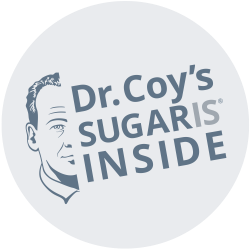A major new study suggests that diets high in ultra-processed foods could significantly increase the risk of lung cancer – even after accounting for smoking and other lifestyle factors.
Why Ultra-Processed Foods Are Under Scrutiny
Ultra-processed foods (UPFs) are everywhere, from packaged snacks and sugary drinks to processed meats and ready-made meals. These products are designed for convenience, but they often contain additives, preservatives, and refined ingredients that harm long-term health and are far removed from their natural sources.
UPFs have already been linked to obesity, diabetes, and cardiovascular disease. Now, evidence shows they may also be connected to lung cancer, one of the deadliest cancers worldwide.
How Was the Study Conducted?
The study analysed data from 101,732 adults enrolled in the Prostate, Lung, Colorectal and Ovarian (PLCO) Cancer Screening Trial – a large-scale project in China. Participants had an average age of 62.5 years and were followed for 12.2 years.
Researchers assessed dietary habits using a validated diet history questionnaire and categorised foods using the NOVA classification, which ranks foods based on the degree of processing.
During the follow-up, 1,706 lung cancer cases were confirmed:
- 1,473 cases of non-small cell lung cancer (NSCLC)
- 233 cases of small cell lung cancer (SCLC)
All diagnoses were pathologically verified, and researchers applied multivariable Cox regression analysis to control for smoking history, diet quality, and other risk factors.
What Did They Find?
The results were clear:
- People in the highest quarter of UPF consumption had a:
- 41% higher risk of lung cancer overall
- 37% higher risk of NSCLC
- 44% higher risk of SCLC
These findings remained significant after a wide range of sensitivity analyses, reinforcing the strength of the association.
Why Does This Matter for Public Health?
The implications are significant. While smoking remains the dominant risk factor for lung cancer, this study highlights the role of diet and food processing in cancer development. One feature of UPFs is the heavy use of refined sugars and artificial sweeteners, often combined with additives and chemical processing. These ingredients are linked to inflammation, metabolic stress, and insulin resistance, which may contribute to cancer risk.
As research continues to show the health impact of ultra-processed diets, the need for alternatives – both in formulation and ingredient sourcing – has never been clearer. Natural sugar alternatives, such as low-GI rare sugars, offer a way to create products that are both health-conscious and enjoyable, supporting a shift away from the overuse of refined ingredients in modern food manufacturing.
The Bottom Line
Although more research is needed across diverse populations, the evidence suggests that reducing ultra-processed food consumption could be an important step in lowering lung cancer risk – alongside well-known preventive measures like quitting smoking and maintaining a balanced diet.
Reference:
Wang K, Zhao J, Yang D, Sun M, Zhou W, Wu Y. Association between ultra-processed food consumption and lung cancer risk: a population-based cohort study. Correspondence to: Professor Yongzhong Wu; yongzhong.wu@cqu.edu.cn. ORCID: http://orcid.org/0000-0002-6958-7677
https://thorax.bmj.com/content/early/2025/07/19/thorax-2024-222100


